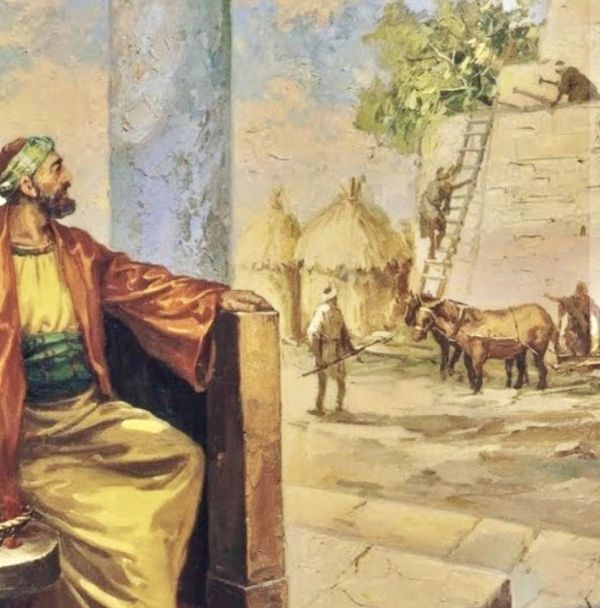This Sunday's Gospel, taken from Luke, highlights the greed of a rich man who thinks about enlarging his warehouses because of abundant harvests, neglecting his soul and his relationship with God, who finds him unprepared for sudden death.
Instead of enriching himself with God, he foolishly thinks of accumulating for himself.
Francis of Assisi, on the other hand, gave everything he owned to the poor and set out on a journey, giving back to God the little he had in exchange for the much he would receive.
He was in love with Lady Poverty; he had married and esteemed her because she had been chosen by the Son of God, who had nowhere to lay his head.
He was so evangelically attracted to her that he took pity on creatures poorer than himself.
The Sources recount:
"It happened to him, during a journey, that he met a poor man. Seeing his nakedness, he was saddened in his heart and said to his companion in a lamenting voice:
'The misery of this man has brought us great shame, for we have chosen poverty as our only wealth, and yet it shines more brightly in him than in us'" (FF 1126).
And to Bernard, a citizen of Assisi, who later became his companion in the following of Christ, he advised him to leave his possessions, which he considered a false fief.
But to be sure, "when morning came, they entered a church and, after praying devoutly, opened the Gospel, ready to carry out the first advice that came to them.
They opened the book, and Christ revealed his counsel to them in these words: 'If you wish to be perfect, go, sell what you have and give it to the poor'. They repeated the gesture, and the passage appeared: 'Take nothing for the journey'. A third time, they read: 'Whoever wishes to come after me, let him deny himself'.
Without delay, Bernard did everything and did not omit even a single iota. Many others, in a short time, freed themselves from the bitter cares of the world and, under the guidance of Francis, returned to the infinite good in their true homeland. But it would take too long to tell how each one attained the reward of the divine call" (FF 601).
Clare herself had asked and obtained from Pope Gregory IX the Privilege of Poverty (17 September 1228) in writing.
This document assured the Poor Sisters of St Damian the right to live without any property in this world, following in the footsteps of the One who, for us, became poor and the Way, the Truth and the Life.
In the same Rule, regarding those who wanted to enter the monastery to follow Christ, Clare says:
"And if she is suitable, let her be told the words of the Holy Gospel: let her go and sell all her possessions and give them to the poor. If she cannot do this, her good will is enough" (FF 2757).
And in her first letter to Blessed Agnes of Prague [her spiritual daughter], she writes:
"O blessed poverty! To those who love and embrace you, you procure eternal riches!
O holy poverty! To those who possess you and desire God, he promises the kingdom of heaven, and offers infallibly eternal glory and blessed life.
O pious poverty! The Lord Jesus Christ [...] deigned to embrace you in preference to all other things" (FF 2864).
«So [it is] with those who store up treasures for themselves and do not enrich God» (Lk 12:21).
Sunday 18th in O.T. year C (Lk 12:13-21)












